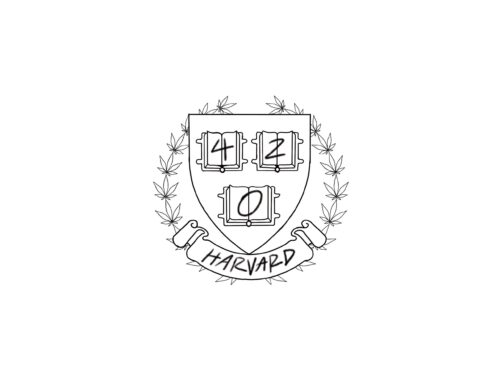Weed use on campus remains a somewhat open secret—or at least an open smell—depending on the rooms in some dorms. Psychedelics are less common by comparison but still see some use among some student subgroups on campus according to the Independent’s prior investigations. Yet, despite the breadth of changes around Massachusetts state law and a growing push to reform federal drug scheduling, the unchanged federal statutes mean marijuana remains very restricted on campus for personal and research purposes.
Since Harvard accepts federal funding, and marijuana is still classified under Schedule 1 under the Controlled Substances Act, the University must adhere to the associated federal guidelines that classify marijuana on the same level as more extreme drugs such as heroin. Under the Act, a Schedule 1 drug is one which has “no currently accepted medical use and a high potential for abuse,” according to the DEA. Not only does the Act forbid any type of marijuana possession and consumption, but also any attempts at research to assess its potential benefits and dangers unless they are enabled under very specific federal rules.
Even though Massachusetts legalized the possession and recreational use of marijuana for users 21 and older in a 2016 ballot initiative, the University’s ties with the federal government means that its policies on the drug are more restrictive, relative to the rest of the state. Psychedelics remain forbidden under Massachusetts and federal law, but there have been some recent efforts in the state legislature to permit their use more broadly.
The Harvard University Police Department makes this clear on their drug and alcohol policies, as “Even if possession or use of marijuana would be permitted under Massachusetts law, it remains prohibited on Harvard property or as part of a Harvard activity.” This also includes official Harvard-affiliated student organizations that are considered as an extension of the University, even if they were to host an off-campus event and followed all the relevant state laws.
This also means the medical applications of marijuana are prohibited on Harvard’s campus, as “Federal law still prohibits the possession, use, or distribution of marijuana, including for medical purposes,” according to the official HUPD policy. This also forbids Harvard University Health Services from using or offering medical marijuana for treatment, despite Massachusetts permitting its medical use since 2012. While Harvard Medical School is still able to publish features and some research on the topic, Harvard undergraduates hoping to seek treatment with cannabis remain prohibited from doing so.
However, HUPD regulations do not emphasize criminal punishments for simple possession as much compared to active dealing, which fall under Massachusetts’ prohibitions on drug trafficking. Marijuana and drug use may place students in situations that could lead to related crimes like property damage or physical altercations, but possession alone is more detailed in the regulation as a matter handled by Harvard’s administration than it is directly by the police.
Arrest incidents regarding marijuana remain rare according to HUPD’s public logs, but the complications of marijuana dealing have led to tragedy on Harvard’s campus. In 2009, non-student Justin Cosby entered Kirkland House possessing large quantities of marijuana and was murdered in the House’s basement by another intruder Jabari Copney in what was described as a botched robbery attempt. Copney was sentenced to life imprisonment in 2011, and Cosby’s mother attempted to sue the University for the wrongful death of her son. While nothing that deadly has occurred since, students looking to get supplied marijuana face the enormous risks of the black market present in the state even after legalization.
Regardless of police policy, there are a few spots where the University is hoping to shift the norms around drug bans, albeit in areas broader than marijuana. In the Summer of 2021, Harvard Law School’s Petrie-Flom Center for Health Law Policy, Biotechnology, and Bioethics launched a three-year research initiative called the Project on Psychedelics Law and Regulation (POPLAR) to research policy regarding psychedelics. While marijuana is not technically a psychedelic, and thus outside the effort’s purview, their research focuses on reforming the rules around other drugs similarly prohibited under Schedule 1 that could help change their broader legal acceptance.
Mason Marks, the Senior Fellow and Project Lead on POPLAR, described the project as an attempt to bring more scholarly analysis into the legal and policy aspects of drug regulation regarding psychedelics, compared to prior academic focus on medical applications that face much tighter regulations on research. Still, Marks noted that academic efforts like POPLAR remain rare on campus, in part due to the long-standing stigmatization of drugs that also affects their advocacy efforts. “It took law firms a long time to warm up to the cannabis industry and practice in that space, and it’s almost like going all the way back to the very beginning with psychedelics,” Marks said. While student outreach remains tricky given the same stigmas, POPLAR has spoken at events of the Harvard Psychedelics Clubs and at a psychedelics research event at the Divinity School.
Whether such efforts to shape federal policy conversations around psychedelics will do the same for marijuana remains to be seen. The restrictions of Schedule 1 combined with the University’s dependence on following federal rules to keep their valuable funding flows means that, despite the rarity of incidents and changing academic efforts, marijuana and psychedelic drugs will remain prohibited barring any changes on the federal level. Until then, students on campus continue to balance under the same ambiguous limbo that has remained at the University for decades, one which places them under a tighter watch than the rest of the surrounding state.
Ryan Golemme ’23 (ryangolemme@college.harvard.edu), who still has never seen a real cannabis leaf, writes News for The Independent.

